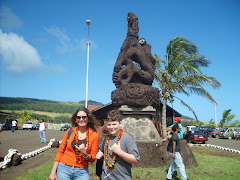Webb's article hits close to my heart as I have always been interested in Geology, landscapes and the earth. As my interests grew to include the cultural aspects of the land and how people adapted to their environment: what they did to survive, how they survived and the big question, Why there?, thus peaked my interest in Geography. Webb states it best with, "To me land is the matrix out of which the culture grows." It is the framework, "firm under your feet." I studied history in high school and ashamed to say, barely passed with a"D." Yet once I began traveling, and actually saw the land on which the battles were fought, or saw the documents that changed the nation, then it became real for me and then did I begin my quest for more information and history. Webb points out that each man had to fend for themselves and experience what would work best for him, without knowing the outcome. The land on which they decided to settle was some of the most difficult as far as weather, terrain and aridity, yet they perservered and their determination changed the way we look at the whole frontier. No longer is it a desolate place of little or no population, a territory crossed only in passing by the early trappers, hunters and pioneers attempting to work their way west or to someplace else, but man's resourcefulness led him to settle in this area and learn to work the land and its surroundings into a place of permanance, a home.
Popper, Lang and Popper's (P,L and P)article on the census was interesting, although I am not too fond of the way Geographers have a tendency to criticize other's works, in how the census was taken during the 19th century. Recently I have been interviewed by the census takers in my area and when I read that they originally asked as many as 13,000 questions, was a bit relieved. If you have ever been one of the questionees of a census, they come over to your home 4 times, once a month for 4 months. Then, they interview you by phone once a month for the remaining year. At times it seems a bit offensive and the questions somewhat inappropriate, but according to P, L and P's article, they even asked questions "ranging from garbage disposal to polygamy." (I hope to find some of this information useful in my research on Colorado City, AZ).
As much as I was annoyed , the job of a census taker in those days had to be somewhat boring, tedious and at times dangerous. They had to traverse an immense portion of land, most likely on horseback or wagon, and had to endure who knows what kind of weather or hardships along the way, all in the government's quest for information regarding density of places and regions.
Rapa Nui

Vacation of a Lifetime
Wednesday, February 20, 2008
Subscribe to:
Post Comments (Atom)

No comments:
Post a Comment